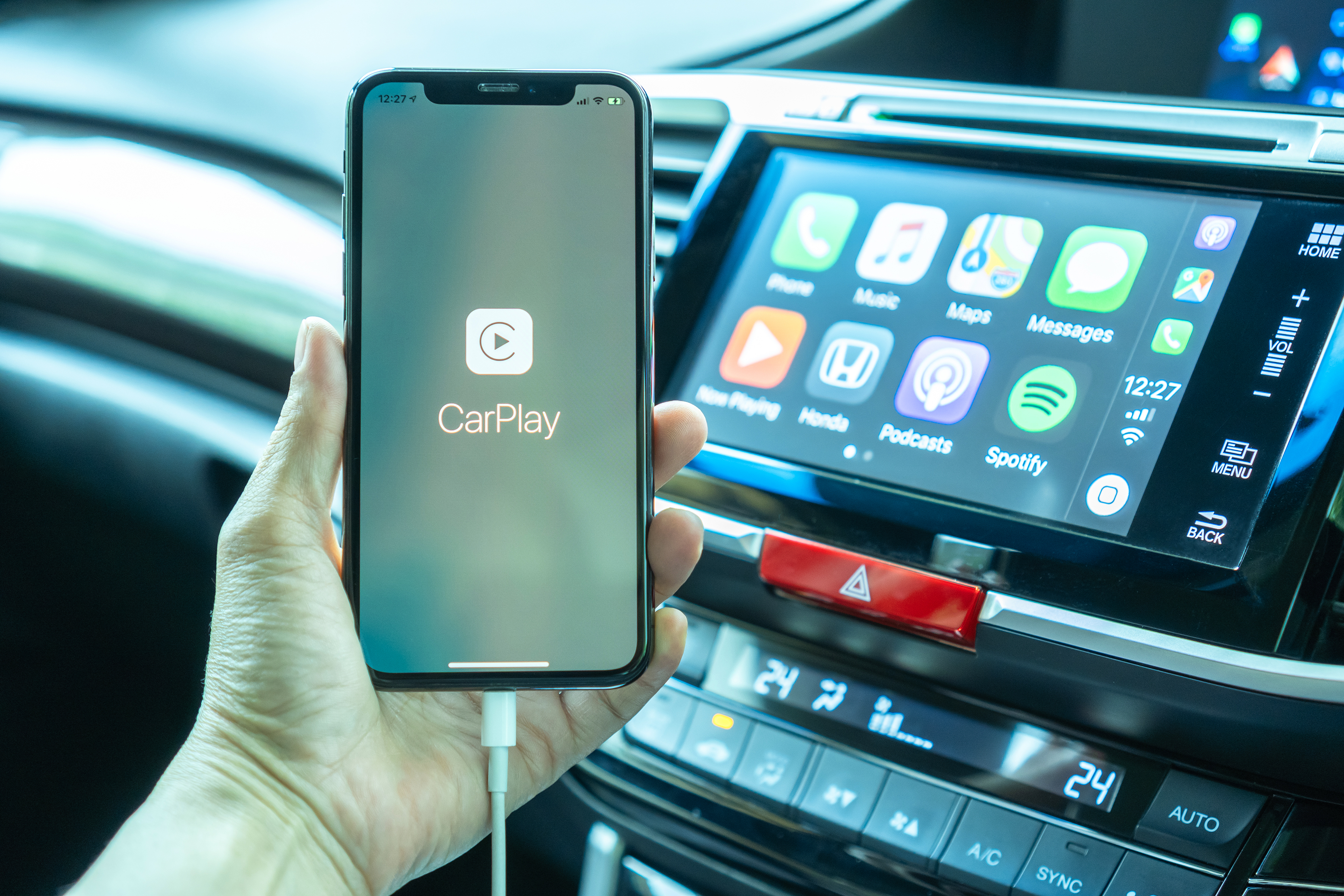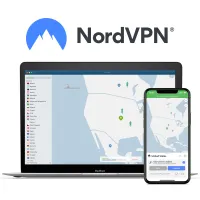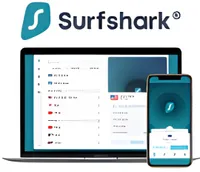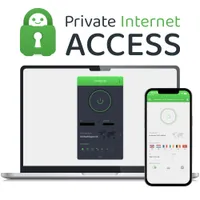How to use a VPN with CarPlay
The easy (and reliable) way to secure your Apple CarPlay traffic

Sign up for breaking news, reviews, opinion, top tech deals, and more.
You are now subscribed
Your newsletter sign-up was successful
A VPN is a must-have security tool for the privacy-minded. It'll help you keep snoopers at bay by encrypting your internet traffic, and safeguard your online activity by cloaking your original IP address.
Given the amount of personal data that flows through Apple CarPlay, including your messages and real-time location, as well as the next-gen CarPlay experience set to take control of your car's reversing cameras, climate control, and even vehicle diagnostics, investing in one of the best VPNs around is pretty sensible.
Although Apple is praised for its seemingly watertight security, CarPlay lacks encryption—a major privacy pothole you can fill with a Virtual Private Network (VPN). However, the caveat here is that some VPNs cause issues with CarPlay, and may not work at all if CarPlay detects them.
In this guide, I've rounded up the best VPNs for CarPlay. I'll also show you how to use a VPN with CarPlay so you can steer clear of data leaks, cybercriminals, and hacking attempts.
How to use a VPN with CarPlay
There are two ways you can use a VPN with CarPlay:
1. My go-to method is to opt for a provider with reliable VPN obfuscation technology. Obfuscation conceals the fact that you're using a VPN in the first place. So, Apple CarPlay will treat your VPN-encrypted internet connection like a normal, unencrypted connection, so you don't need to sacrifice your digital privacy to enjoy the benefits of Apple CarPlay.
2. If your VPN doesn't offer obfuscation, or if CarPlay detects your VPN, you can try using split tunneling instead, and configuring the Apple CarPlay app to bypass VPN encryption.
Method #1: obfuscation
The best (and most reliable) way to use a VPN with CarPlay is to opt for a provider with robust obfuscation.
While most VPNs do have some form of obfuscation tech, the market is flooded with providers left, right, and center—and they're not all made equal. I've rounded up the best iPhone VPNs of 2026, so far, to help you find your ideal match.
It's worth noting that ExpressVPN isn't included in my shortlist of the best CarPlay VPNs. Unfortunately, multiple users have reported that the provider causes problems with CarPlay, and my personal testing confirmed the issue.
1. NordVPN: the best VPN for all-around security
NordVPN is an all-in-one security suite offering extras like built-in antivirus and ad-blocking—and there's also reliable obfuscation and split tunneling for CarPlay. It's currently the best Netflix VPN, too, thanks to class-leading unblocking power and a vast network of servers.
Take advantage of the 30-day money-back guarantee and take NordVPN for a risk-free test drive before committing.
2. Surfshark: the best cheap VPN
Surfshark offers incredible bang for your buck—for just $2.29, you get lightning-fast speeds, rock-solid security, powerful unblocking capabilities, and unlimited simultaneous connections that'll allow you to install the VPN on all of your gadgets.
Put Surfshark to the test with a 30-day money-back guarantee, and see why it's a close runner-up to NordVPN.
3. Private Internet Access: a battle-tested VPN
PIA is up there with Surfshark when it comes to the best-budget VPNs, offering unlimited connections and top-notch customizability at a very attractive price point. It has more servers than NordVPN and Surfshark combined as well as a built-in ad blocker for all-around security.
Check out PIA today, and don't forget that you're covered by a 30-day money-back guarantee.
Method #2: split tunneling
If obfuscation isn't on the cards, you can configure CarPlay to bypass your VPN entirely by using split tunneling. Unfortunately, I'd class this method as a workaround at best because it isn't ideal. Why? Well, because you'll be eliminating the security benefits of using a VPN in the first place—your CarPlay traffic remains unencrypted, just like a standard internet connection, meaning it's not safe from prying eyes.
However, those who want to use CarPlay and their VPN concurrently and have tried and failed to make it work through VPN obfuscation may want to give it a go. After all, it will still allow you to enjoy all VPN benefits on your iPhone/iPad while you carry on with music, navigation, streaming, etc. on CarPlay without interruptions.
Here's a step-by-step demonstration of how you can bypass a VPN with Apple CarPlay. Note that I'm using NordVPN in this example, but any of my top picks will work similarly.
Step 1: Pick a reliable VPN
Some VPN providers don't offer split tunneling and even those that do sometimes can't detect CarPlay. This makes it less a question of "how" you use a VPN and more about which VPN you use. So, look for a high-quality provider that offers split tunneling, such as NordVPN and Surfshark.
Step 2: Go to settings > split tunneling
After you have installed and configured the VPN to your liking, check the settings menu to find the split tunneling option. It's worth noting that different providers keep the option in different places. NordVPN, for example, has a separate Split Tunneling section whereas ExpressVPN keeps split tunneling on the General tab.
Step 3: Set Apple CarPlay to bypass
Under split tunneling, you should be able to find an "Add" button. Tap it, and add CarPlay to the bypass list.
Step 4: Connect
That's all—just connect your VPN like you normally do and you'll be able to use CarPlay without any issues.
FAQs
Are VPNs safe?
All of my VPN picks are safe to use—I sort through tons of providers and only recommend those that pack secure encryption protocols, come with a rock-solid no-logs policy, and an intuitive kill switch, amongst other security features.
However, not all VPNs are made equal and there are hundreds of dodgy services that track your internet usage and log your IP so they can sell your data for profit. If you're after reliable security and encryption, check out TechRadar's list of the most secure VPNs.
Are VPNs easy to use?
Most industry-leading VPNs are user-friendly, thanks to their straightforward setup processes, sleek apps, and robust customer support.
ExpressVPN and Surfshark top my list of recommendations, however, as they come with one-click-connect functionalities you can use to get up and running in the blink of an eye.
Does my iPhone need a VPN?
While iPhones are generally very secure, they aren't totally immune to malware nor can they safeguard your online activities from being tracked by hackers, ISPs, and even government entities.
An iPhone VPN puts a stop to this snooping and allows you to access streaming content from overseas, block pesky ads, and even bypass internet censorship.
We test and review VPN services in the context of legal recreational uses. For example:
1. Accessing a service from another country (subject to the terms and conditions of that service).
2. Protecting your online security and strengthening your online privacy when abroad.
We do not support or condone the illegal or malicious use of VPN services. Consuming pirated content that is paid-for is neither endorsed nor approved by Future Publishing.
Sign up for breaking news, reviews, opinion, top tech deals, and more.
Krishi covers buying guides and how-to's related to software, online tools, and tech products here at TechRadar. Over at Tom's Guide, he writes exclusively on VPN services. You can also find his work on Techopedia and The Tech Report. As a tech fanatic, Krishi also loves writing about the latest happenings in the world of cybersecurity, AI, and software.
- River HartTech Software Editor


